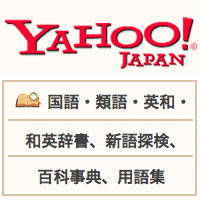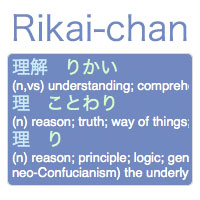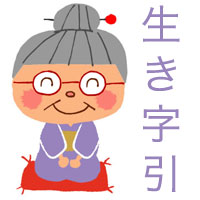Free Japanese resources are plentiful on the internet, but have you ever wondered if you are getting the most out of them? While studying Japanese and working as a translator I’ve found a lot of great tools. So here’s Gakuranman’s top 5 picks for the best online dictionaries for Japanese-English translation!

We’ll be working top to bottom, best to merely ‘good’ (because there are no bad dictionaries in this list, in my opinion!) And for those of you who prefer to listen rather than read, I will also compile a video to accompany this post in due time :). Bear in mind also that this article is focussing on dictionary-style tools to help you speed up your learning Japanese. If you want all-round study tools like grammar guides and flash-card systems, see the bottom of this post for more great links! Let’s get cracking!
#1 ALC
What can I say about ALC – Eijiro on the Web? As a dictionary it is top-notch, but you’d expect it to be for being at the top of my list! It’s a dictionary service made by translators for translators and as such, it features a fountain full of superb sentences using your unknown word in context. As a one-button search tool and with the page entirely in Japanese it can at first be deceptive, but take the plunge and you will be rewarded with real Japanese example sentences and a dictionary that can even handle some medical and business terms!
Notable features: The one-stop single input field for both English and Japanese and high level of translations provided. Stick any word (or occasionally compound kanji words) into the field and watch a plethora of useful example sentences pour out below, all taken from real life sources such as newspaper articles.
Also highly useful are the furigana and double function. Double-click should be automatically enabled so that you can simply double click on any kanji word you don’t know and ALC will look it up for you to save you time copy and pasting. Also, if you click on the 機能 (functions) button near the top of the page, you can turn on the furigana option (it’s the first option) so that the words you search for in English have the reading written next to them!
Recommended for: Advanced learners of Japanese / Translators
#2 WWWJDIC
The perennial online dictionary for Japanese-English translation. It has been around for what seems like forever and has formed the basis for many other online Jp-Eng dictionaries (such as the popular jisho.org) as well as several pieces of software! The interface is very crude, but don’t let that fool you into thinking that it’s ‘just another dictionary’ – search the web and you’ll find Jim Breen praise the world around!
Notable features: The ‘Translate Words’ box. It’s just about the only feature of this dictionary that I use, but there’s a big, big reason for it. It’s also the reason I chose the original Jim Breen website over the more user-friendly Jisho.org. Put simply, it allows you to copy and paste long pages of Japanese text into the field and it spits it out all in order with the translations to each word (and some phrases) listed. If you’ve ever pulled your hair out copying and pasting single words into online translators before, this is this tool for you!
Recommended for: People who want to translate long passages of Japanese text quickly. Jisho.org recommended for everyone else, especially Beginner-learners because of the English interface!
Oh, and if you’re wondering why I didn’t suggest you use one of those online page translators like Babelfish or Google Translate, it’s because they are terrible for everything except getting the gist of a page. My advice for anyone who wants proper translations is to learn Japanese grammar and then piece together the sentences based on the context and individual word translations you get from dictionaries like WWWJDIC. (Incidentally, if you must use an online page translator, use Yahoo’s Japanese translation page – not Babelfish. My boss (a native Japanese speaker) and I tested the major online translators and found Yahoo’s Japanese Honyaku service to be the most accurate).
#3 Yahoo! Dictionary
At number 3 in my list comes Yahoo! Dictionary. I used to use this before discovering ALC and it played a very important role in helping me to pass the Japanese Language Proficiency Test level 1. It provided me with useful example sentences to add to my SRS program.
I’m sure some of you studying Japanese will be doing so yourselves already, but for those of you who aren’t, SRS means ‘Spaced Repetition System’. Basically, you immerse yourself in the language by creating a database of real Japanese sentences and review them every day. The software you use will keep track of your progress and automatically feed you the words and sentences you get wrong most often, thereby reinforcing your knowledge of them. Through constant exposure, you naturally pick up the words, grammar and sentence in context. (For SRS software, I recommend Anki).
Notable features: So the feature that drew me to Yahoo! Dictionary was the sentences. Specifically, if you use the Japanese-English dictionary (和英), you will often get a nice short list containing the word you were searching for, followed by a few example sentences. The sentences, I found, were usually just right in their difficulty level and good for intermediate-advanced learners of Japanese to use in SRS programs. The Yahoo! dictionary also shines in that it has a very simple interface and allows you to look up synonyms (類語) for Japanese words and also choose the Japanese-only dictionary (国語). Just don’t expect miracles with long compound kanji. Even 地球温暖化 (global warming) was too much for the Japanese-English dictionary.
Recommended for: Intermediate-Advanced learners of Japanese for gathering sentences for SRS.
#4 Rikai-chan
Rikaichan is a wonderful little add-on for Firefox which enables you to view both the reading and English translation of virtually any kanji or kanji compound that you come across on the internet. You won’t be able to use it for extremely long or complicated words, but if you’re struggling to remember the meaning of a kanji, the readings for it or just want to get a general gist of the sentences on the page you are looking at, you’d be hard pressed to find a better solution. Quick note: If you need a detailed view of a kanji, hold down the shift key.
Notable features: The ease of installation and use and the deep power harnessed in such a simple plugin. There are also language add-ons for German, French and Russian! Although I’m not a Rikaichan user much myself (I prefer to copy and paste my translations into WWWJDIC and work from there with ALC), being able to hover over words in your casual surfing is a great help and takes a lot of the pain away that comes with trying to read Japanese online.
Unfortunately, if you aren’t careful you may come to reply on this little plugin a little too much and end up forgetting the readings of words. It is my experience that the more I have a dictionary beside me (whether it be electronic or paperback), the less I think about the readings of words and the more likely I am to become lazy. For that reason, I only recommend Rikaichan to Japanese learners who are just starting out and for situations when you don’t want to study or just wish to browse complicated websites.
Recommended for: Beginner-Intermediate learners of Japanese or casual net surfers.
#5 Ikijibiki
To round up my list, I’ve rather cheekily chosen a very special type of dictionary. That is: Ikijibiki (生き字引). It essentially means a living/walking dictionary referring to none other than – a person! Yes, my final recommendation for a free online Japanese-English dictionary is to ask people themselves.
There are positively dozens of services out there that allow you to connect with other learners and native speakers. The most obvious ones of later that spring to mind are Twitter, Facebook and Mixi. You can often find groups especially created around the topic you are interested in, and if you play ball and help others, people will often be glad to help you when you have language questions. Case-in-point: I asked my Twitter followers which Japanese dictionaries they preferred and I got over 20 replies – thank you all! You will of course have to spend the time building up relationships, but I often find having a native speaker on hand is the ultimate way to get clear and usually correct answers to many tricky problems that cannot be solved with automated dictionaries.
Notable features: For human insight and awareness and understanding of context. You just can’t beat a human dictionary, unless of course you are asking very specific and technical questions of which they have no knowledge. For virtually anything else, the replies of a native speaker are usually going to be more insightful and useful than a dictionary. The downside is that nobody likes to be treated like a walking book for language knowledge, so make sure you only use native speakers sparingly and return the favour in other ways!
Recommended for: Everyone! But especially translators who need help with idiomatic phrases and for learners who want to interact with native speakers more.
Obaachan picture from Utsumi Chiharu
If you’re feeling a little put-out by my last suggestion, take a look at these other dictionaries that didn’t quite make the cut this time. That’s is not to say they aren’t good tools – they most likely are – but that I haven’t yet dug up a compelling reason to use them over other dictionaries. If you think I’m making a grave mistake, please tell me in the comments!
Yamasa – A fantastic little dictionary site that shines for its kanji stroke-order pictures that draw themselves in real time!
Sanseido
Glova
Google Goo Dictionary
Kotobank
POPjisyo
Wikipedia
**********
In addition to all those mouth-watering choices, I have a few more suggestions for expanding your toolkit.
My fishy friend over at Tofugu compiled an excellent list of general Japanese Language learning resources. Check them out for ultimate Japanese ownage.
Maggiesensei is a brand new site with lots of great Japanese titbits and lessons as well as comedic dog-themed pictures. Pioneered by Gimmeabreakman of Youtube fame, Maggie’s lessons are all extensive and completely free!
Finally, if you’re interested in getting more practical experience in Japanese and are itching to improve your listening and spoken Japanese, then you would do well to check out edufire. There’s simply no substitute for learning with a native teacher and many of them at edufire offer classes for free! Check out the learn japanese class listings pages to find out what’s going on. I occasionally teach Japanese classes over there myself!
Alrighty then! To finish up, tell me what your favourite Japanese resource is and why!

















Weblio (http://ejje.weblio.jp/) is THE online Japanese-English dictionary for high-level translation. I am very surprised no one has listed this yet! As a professional translator of technical Japanese (mostly automotive manufacturing and engineering), I have used it almost exclusively since 2011 or so. Weblio has 9.45 MILLION entries – more than any of the Japanese online dictionaries. The secret to its power is that it provides listings from dozens of major reference sources and even more industry glossaries in hundreds of fields. So even if the first or second source doesn’t have the exact translation you’re looking for, the third or fourth one ofen has it. Conversely, one can infer somewhat from the order or “popularity” of translations from the different sources which ones are considered standard or most appropriate. I used to use ALC, but found that it lists many odd translations, and sometimes the English is just plain wrong, or obviously “Japlish” (wa-sei eigo). The sample sentences are also often poorly written or evidently computer-translated, and even if helpful, would often be too time-consuming to read through and parse, especially compared to a quick scan of the comprehensive listings in Weblio.
Hi and thank you for the good resource. I am not sure you still take contributions/questions, but I am a long term resident of Japan who picked up the language by ear. After 26 years i finally studied formally for two, but as an ear learner (same with music), I find the going rough. Paper dictionaries all are organized in Hiragana by A I U E O, SA SHI SU SE SO, so if i cannot be sure if the word I am looking up is written SE or SEI, Ko or KOU, it is slow going. Wonder if there are any decent paper dictionaries that are in romaji and arranged alphabetically.
The second problem I have is this, using the Jim Breen dictionary:
REAL LIFE EXAMPLES
I type in Seikaku and get the Kanji plus at least one example. Good. But then there is Seikakuku ni, and that does not show up. A word I often confuse with Seikaku, Sekkaku does show up, but not with the usage I know:
SEKKAKU KITA, TABEMASHOU—–We might as well (stay and have something to) eat since we (took the trouble) to come here.
All i see is: (adv,n) (1) (uk) with trouble; at great pains; (adj-no) (2) rare; valuable; precious; long-awaited; (3) kind; (adv) (4) specially; especially; expressl
Similar in a related dictionary: http://jisho.org/
I am wondering if there is a dictionary that caters to my needs. It can be in paper (I do not have an iphone and my Ipad is not always near a wifi connection. It can be an app with no need for connectivity). It can also be a dedicated electronic dictionary/
Last, I went to Eijiro and cannot get it to work. I type SEIKAKU and I get nothing. It can’t find the word at all: http://eow.alc.co.jp/search?q=seikaku&ref=sa
Probably not using it correctly.
Thank you in advance for any advice you might have.
(maybe I just need one of the above and a good teacher to study again).
Paul Arenson
Miyazaki Japan
I used to use Jim Breen’s dict, but then I found Tangorin.com. It’s simple, straightforward, even features direct links to other dictionaries if the entry is not to your liking AND, best of all, it allows for the creation of vocabulary lists with the click of a button, lists that can easily be exported to Anki. Unbeattable. The only thing missing is pronunciation, or some indication of pitch, but then again, the links at the bottom of the page will give you that.
Dredging up this old post for one more comment: I thought you should take a look at <“http://altjapan.typepad.com/my_weblog/2009/11/the-mysterious-case-of-the-spare-prick.html”>this post, and particularly the final comment appended to it by “Big Ben.” Illuminating stuff re ALC's glossaries!
tangorin.com also worth mentioning
A list of desktop, online, mobile & print dictionaries… http://nihongoup.com/resources/
A list of desktop, online, mobile & print dictionaries… http://nihongoup.com/resources/
Great list. I don't use online dictionaries much and when I do I am usually looking for a J-J dictionary so I'm glad you rounded these up for me.
Here's something kind of relevant… It's not a dictionary, but could help you look up words: http://www.hiragana.jp
This site will load a Japanese page and put all the furigana over the kanji for you so you know how they are read (it screws up names quite a bit)
Tangorin.com is definitely my favourite. Very simple to use and a clean interface.
Jim Breen is what I turn to for sentence translation and to listen to audio for pronunciation.
Hilarious! Nice find Harvey ;)
Thanks Durf. Definitely some food for thought there and reason to be careful when using dictionaries. I imagine those sorts of bizarre and ungrammatical sentences would be more of a problem for non-native speakers of English than for natives who could pick it out as rubbish in an instant.
I suppose thinking about it for a second I realise most of my use of ALC and other dictionaries have been for very difficult terms to do with tax and occasionally medical terms that would have a set translation. That may explain why I hadn't come across weird translations so far.
Thanks again for providing such useful advice!
ALC often has totally messed up English.
Check this “john wayne it” translation of 精力的である。
http://www.japannewbie.com/2008/08/24/john-wayn…
You should get one – they're great! :D
Seems like Kotoba is popular for the iphone. If I had one I'd give it a try ;)
You're an old fish already! :p
I’m partial to http://www.nihongodict.com
Type in a word and it gives you romanji, hiragana, kanji on the same page with kanji lookup.
I think ALC also offers this sort of service, but I haven't fully explored it yet. I have to admit, I've been very disappointed with Google Translate so far. Perhaps it'll pick up, but I'm skeptical about any such automated software…
You're welcome! Enjoy :)
Thanks for your help on Twitter ^^. I agree – ja.wikipedia.org is a great site for looking up the explanations to harder terms and concepts that a dictionary can't illuminate fully enough. Definitely a strong tool to complement dictionaries :)
Google search and Google image search are also very good for finding out specialist words as well as getting the general consensus on a topic. Also highly useful for checking particles – just stick the problem sentence inside quotations and see which get the most hits on the j-Google. Chances are the one with the more hits is correct :) Not fail safe, but helpful.
Thanks Harvey! I use a Casio EX Word dictionary myself – very comprehensive and useful to have, but I like to save battery power and use the computer where possible ;)
Eijiro is a great tool and is well worth the bookmark, but it isn't something I'd rely on much for translation work. The whole project is basically unedited, which means every time the compilers get a matching pair of sentences in the two languages, they toss them in straightaway without worrying whether they represent proper grammar on both sides, a good translation, or anything else. Yes it's a nice source of loads of sample sentences, but a great many of those samples are crap. Use with a giant grain of salt.
The same can be said for Jim Breen's stuff. It's great that it's open-source and available for developers to use in creating their learning and glossary tools, but his approach over the years has been “grab any data that moves and get it in there.” Not a lot of careful curation involved.
If you're an advanced learner or a translator, you should be using J-J dictionaries whenever possible. Here the best online choices are Kotobank.jp, which includes data from 大辞泉 and the 知恵蔵 series, and the Yahoo dictionaries, which include both 大辞泉 and 大辞林. All those are in book form on my shelves, but having them online as well (and for free!) is a boon. Most importantly, all of them are well-edited glossaries without the sort of machine-translated idiocy that slips into the Eijiro data all too often.
Thanks Durf! Agreed J-J dictionaries are the way to go for advanced learners, but I’m not sure how this is supposed to help Japanese-English translation..? Definitely useful for understanding concepts and improving your Japanese though :)
As for ALC eijiro being ‘machine translated’, could you elaborate? This would be a big shock, as I thought the entries were supplied by people… I have yet to come across any real problem words or phrases in ALC, but I’ve heard it can happen. An example would be good if you have a link :)
As a final thought about the accuracy of translations, I also never use the sentences I find verbatim in my work. I use them as a guide to understanding the possible contexts a word could be used in and then use my experience and other knowledge to determine the most appropriate translation. I would also argue that even edited dictionaries are prone to mistakes and are not necessarily the ‘correct’ translations to use. Wikipedia is a good example of an ‘unedited’ website that, for all the potential problems, seems to be doing quite well…
I don’t know, you do have a lot more experience than me (especially working for Japan Echo – I used it as a source in articles at University!) so perhaps you could enlighten us more on the problems with ALC and give some links and examples? :)
Once you get to a certain level as a J-E translator, it becomes more important to deeply grasp how Japanese people understand/use the words they’re writing than it does to learn which glosses dictionary compilers choose for their bilingual works. That’s where J-J gives you better information than J-E. (And I agree that ja.wikipedia.org is a great resource to use a lot too for the same reason.) On the English side, it’s your skill as an English writer you end up depending on most as a translator. At this point I spend lots more time E-E dictionaries and thesauruses than J-E stuff.
ALC is human-compiled, to be sure, but I think some of the samples that go into it were probably the output of computers. No examples I could give off the top of my head, but you can see the lack of care that goes into its compilation when you search for a single vocab term (“wife,” let’s say) and you get ungrammatical and totally bizarre English phrases like “Wife and children are bills of charges. / 妻や子供を持つと、請求書が後を断たない。” You also get misspellings like the “Windous [sic] Intelligent Font Environment.” Lots of danger signs.
I wouldn’t call Wikipedia “unedited”; certainly lots of people involved in editing it and trying to make its content better as time goes on. That’s something that doesn’t happen to Eijiro data as far as I can tell.
Your approach is right on the money when it comes to using dictionaries in translation: you don’t find answers in them, just clues and guidelines to options that you have. So long as you go about the task with this in mind, ALC is a perfectly good resource to include in your quiver. You just need to keep your eyes open and throw out a lot of the clues that it gives you.
Thanks for the link to ALC, I've never tried that one before! It reminds me of my Japanese tutor's Canon electronic dictionary.
I'm a jisho.org user and Kotoba! for the iDevice is useful too :D
I used to use a Canon Wordtank dictionary, but the first one died and the second work cracked when I dropped my bag containing it. Unfortunately that was enough to put me off them for good :(
I like Tangorin.com because it has a nice-looking interface and it works. For the iPhone I use the Kotoba! app.
Ha, you and I are the same :)
One thing that I think will make Gtranslator really good is that they allow users to type in “better translations,” which in theory will help the Google Translation monster grow into a smarter Google Translation Monster. It's all about the crowdsourcing, and I'm excited to see how it evolves!
I have not heard of ALC… am I out of the dictionary loop??
Adding it to my bookmarks right now, you hoopy frood you.
Not online, but I really like Kotoba for the iPhone.
I've used JDIC for a long time. It's pretty good. But Google's translators are getting much better as well and I find myself using that most of the time.
I've been using Denshi Jisho almost exclusively, and while I do love that dictionary, I'm excited about checking all of these out. Thank you so much, great post!
As I said on twitter, I tend to use ja.wikipedia.org (search the term, then explore the English version of the page… doesn't always work obviously, but often enough to be quite useful for more difficult/obscure concepts) and google image search (simply paste the term in google and hit the images… browse around with some common sense and see what japanese bloggers use the term for) frequently to look up Japanese words and phrases.
This often is more illuminating and colloquial than a simple/stiff dictionary definition.
I get along with just Space ALC and Breen, in addition to my Casio EX Word electronic Dictionary. I bought the ALC dictionary CD at Kinokuniya, so I can use it offline as well. Very useful. Faster than going through the website as well.
I agree though – asking native speakers is sometimes vital. I resort to that a lot when I translate!
Nice list!